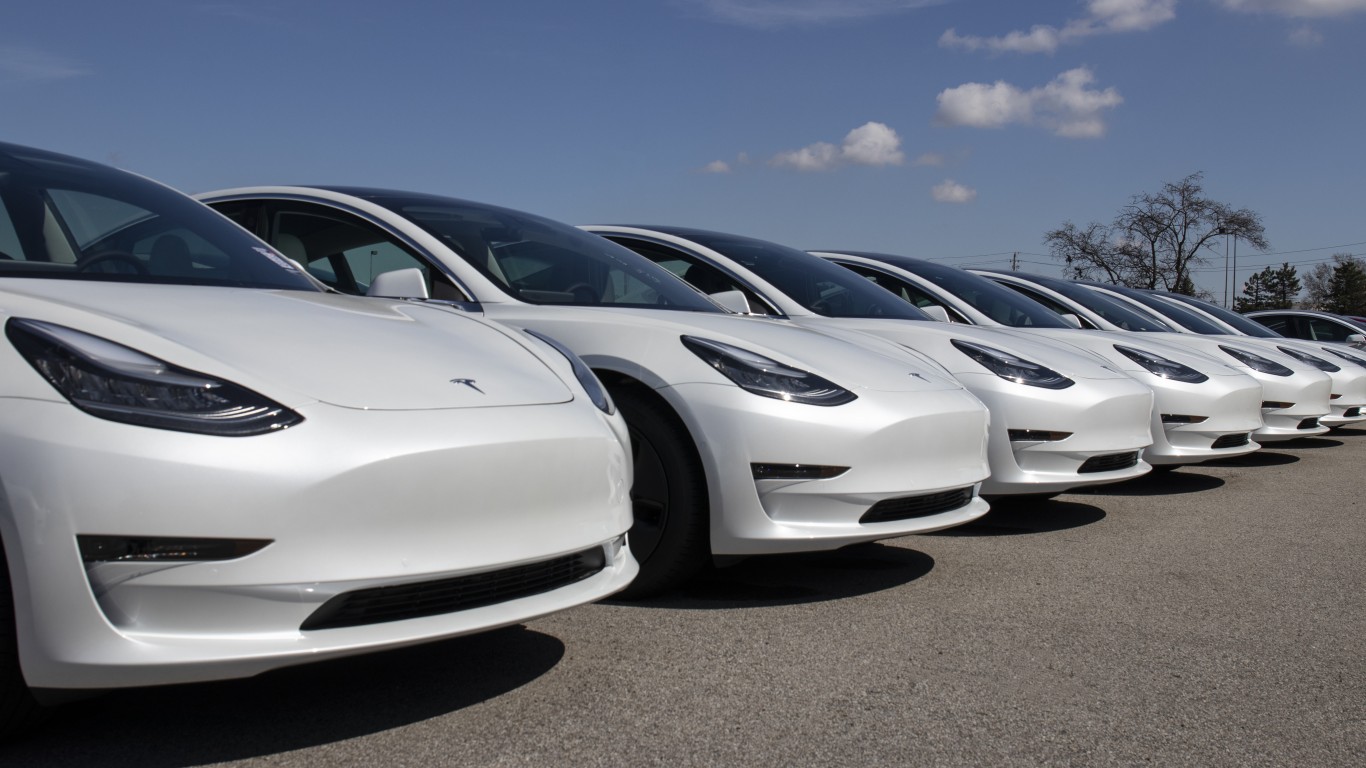
On Friday, United Auto Workers (UAW) launched a rolling strike against the Big 3 automakers: Ford (F), Stellantis (STLA) and General Motors (GM). This results from failed negotiations on shorter 32-hour work weeks, a 40% wage hike, retirement benefits, extended unionization for battery plant workers, and restored 401(k) pension plans for employees hired after 2007.
The deadline for CEOs to respond expired at midnight on September 14th. UAW constitutes 146,000 members, but the rolling 10-day strike entails a staggered approach in rounds, the first putting 12,700 workers out of commission across the three leading automaker factories.
According to UAW president Shawn Fain, this is an extension of the collective bargaining strategy.
“This strategy will keep the companies guessing. It will give our national negotiators maximum leverage and flexibility in bargaining, and if we need to go all out, we will. Everything is on the table,”
During the negotiations, automakers framed UAW demands as too costly and unrealistic. Ford noted that consenting to UAW would result in doubling labor costs, which are already higher than other automakers, such as Tesla and Toyota.
The Big 3 Weight In the US Economy
Ford, General Motors, and Stellantis have a combined market cap of $154.24 billion. For comparison, Tesla alone has over five times larger weight, at $860.92 billion. Despite the Big 3 selling nearly 14 million new cars/trucks in 2022 vs. Tesla’s 1.31 million EVs sold.
Opting for the first simultaneous strike against the Big 3 in the UAW’s 88-year-old history, autoworkers were encouraged by their profits. The last UAW contract was ratified in November 2019. Since then, Ford Motor’s annual gross profit increased by 50.71% from 2020 to 2021 and 9.08% from 2021 to 2022.
Likewise, General Motors saw a 30.76% gross profit increase in 2020 and a 17.36% increase in 2021. After undergoing a merger between Fiat Chrysler Automobiles (FCA) and the French PSA Group in 2021, Stellantis’ annual gross profit went up 6.54%.
These profit margins may seem modest, given that companies now have to reorient toward EVs as governments around the globe keep placing deadlines for gasoline-EV transitions. However, the biggest stumbling block for UAW is the lopsided CEO compensation.
Union-inclined Economic Policy Institute (EPI) calculated that the Big Three CEOs have ballooned their pay by 40% from 2013 to 2022. Moreover, the automakers delivered nearly $66 billion in stock buybacks and dividend payments during the same period.
Is UAW Empowering Tesla?
Tesla has gone to great lengths for its 127,855 full-time employees to remain non-unionized. When such attempts happened in California and New York by UAW and WU, Tesla fired employees responsible for the efforts.
This also applies to Germany, which refused to place its workers under the fold of IG Metall. In March 2021, Tesla-union relations heated up when the National Labor Relations Board (NLRB) perceived this tweet from Elon Musk as a violation of federal labor laws.
However, Elon Musk’s sentiment on unions likely remains unchanged, given how strongly he framed the reasoning behind it.
On top of having 59% EV market share dominance in the US, Tesla employs a direct-to-consumer (DTC) sales model instead of the friction resulting from car dealership markups. Ford alone could ramp up its projection loss for EVs if the strike persists. For 2023, it climbed to $4.5 billion from the previous $3 billion loss projection.
In turn, Tesla could aggressively price its models as extra pressure and cement EV dominance in the US. Already, Tesla models have received the largest price drops of all the vehicles.
This article originally appeared on The Tokenist
100 Million Americans Are Missing This Crucial Retirement Tool
The thought of burdening your family with a financial disaster is most Americans’ nightmare. However, recent studies show that over 100 million Americans still don’t have proper life insurance in the event they pass away.
Life insurance can bring peace of mind – ensuring your loved ones are safeguarded against unforeseen expenses and debts. With premiums often lower than expected and a variety of plans tailored to different life stages and health conditions, securing a policy is more accessible than ever.
A quick, no-obligation quote can provide valuable insight into what’s available and what might best suit your family’s needs. Life insurance is a simple step you can take today to help secure peace of mind for your loved ones tomorrow.
Click here to learn how to get a quote in just a few minutes.
Thank you for reading! Have some feedback for us?
Contact the 24/7 Wall St. editorial team.





